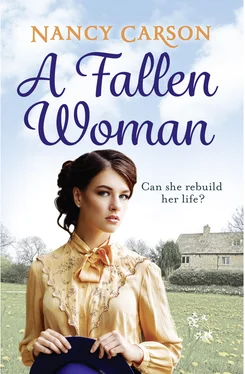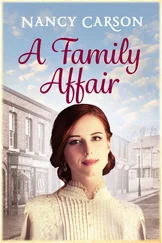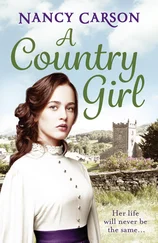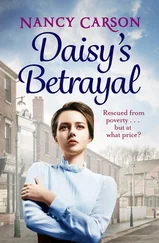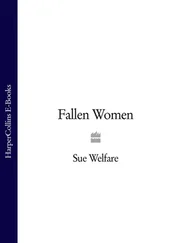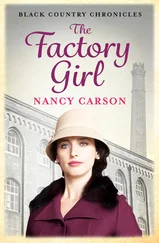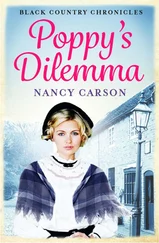A Fallen Woman
Nancy Carson

A division of HarperCollins Publishers
www.harpercollins.co.uk
Published by AVON
A Division of HarperCollins Publishers Ltd
1 London Bridge Street
London SE1 9GF
www.harpercollins.co.uk
First published in Great Britain by HarperCollins 2018
Copyright © Nancy Carson 2018
Cover design © Debbie Clement Design 2018
Cover photographs © Shutterstock.com
Nancy Carson asserts the moral right to be identified as the author of this work.
A catalogue copy of this book is available from the British Library.
This novel is entirely a work of fiction. The names, characters and incidents portrayed in it are the work of the author’s imagination. Any resemblance to actual persons, living or dead, events or localities is entirely coincidental.
All rights reserved under International and Pan-American Copyright Conventions. By payment of the required fees, you have been granted the non-exclusive, non-transferable right to access and read the text of this e-book on screen. No part of this text may be reproduced, transmitted, down-loaded, decompiled, reverse engineered, or stored in or introduced into any information storage and retrieval system, in any form or by any means, whether electronic or mechanical, now known or hereinafter invented, without the express written permission of HarperCollins.
Ebook Edition © February 2018 ISBN: 9780008134884
Version: 2017-01-09
‘There are in nature neither rewards nor punishments – there are only consequences.’
Robert Green Ingersoll
1833–1899
Table of Contents
Cover
Title Page A Fallen Woman Nancy Carson A division of HarperCollins Publishers www.harpercollins.co.uk
Copyright Published by AVON A Division of HarperCollins Publishers Ltd 1 London Bridge Street London SE1 9GF www.harpercollins.co.uk First published in Great Britain by HarperCollins 2018 Copyright © Nancy Carson 2018 Cover design © Debbie Clement Design 2018 Cover photographs © Shutterstock.com Nancy Carson asserts the moral right to be identified as the author of this work. A catalogue copy of this book is available from the British Library. This novel is entirely a work of fiction. The names, characters and incidents portrayed in it are the work of the author’s imagination. Any resemblance to actual persons, living or dead, events or localities is entirely coincidental. All rights reserved under International and Pan-American Copyright Conventions. By payment of the required fees, you have been granted the non-exclusive, non-transferable right to access and read the text of this e-book on screen. No part of this text may be reproduced, transmitted, down-loaded, decompiled, reverse engineered, or stored in or introduced into any information storage and retrieval system, in any form or by any means, whether electronic or mechanical, now known or hereinafter invented, without the express written permission of HarperCollins. Ebook Edition © February 2018 ISBN: 9780008134884 Version: 2017-01-09
Epigraph ‘There are in nature neither rewards nor punishments – there are only consequences.’ Robert Green Ingersoll 1833–1899
Dedication For the people of the Black Country, past and present, who have always inspired me with their warmth, their humour, their can-do positivity, and their collective achievements.
Chapter 1
Chapter 2
Chapter 3
Chapter 4
Chapter 5
Chapter 6
Chapter 7
Chapter 8
Chapter 9
Chapter 10
Chapter 11
Chapter 12
Chapter 13
Chapter 14
Chapter 15
Chapter 16
Chapter 17
Chapter 18
Chapter 19
Chapter 20
Chapter 21
Chapter 22
Chapter 23
Chapter 24
Chapter 25
Chapter 26
Chapter 27
Chapter 28
Chapter 29
Chapter 30
Chapter 31
Chapter 32
Chapter 33
Chapter 34
Chapter 35
Chapter 36
Chapter 37
Chapter 38
Chapter 39
About the Author
By the Same Author:
Keep Reading…
About the Publisher
For the people of the Black Country, past and
present, who have always inspired me with their
warmth, their humour, their can-do positivity, and
their collective achievements.
1892
Aurelia Sampson awoke early. The dream she reluctantly left behind had been delicious, yet disturbing. It had been about him . She had met him clandestinely, as she had in wakefulness. Adulterously, she had shared a strange bed with him that over time would become familiar – in a room lit only by a flickering coal fire, in a second-rate hotel – exactly as she had in wakefulness. The astonishing realism of the dream provided a sense of contentment and she had not wanted it to end, but when she awoke, the cruelty of truth brutally shattered that transient happiness.
With her slender fingers she rubbed tears that welled unbidden in her eyes, allowing herself both the luxury and the heartbreak of thinking about him for a few more precious moments. She stretched languidly before slipping out of bed. As she stood up and eased her feet into her dainty slippers, she shook out her long dark hair, running her fingers through its sleep-entangled strands. She moved to one of the windows, parted the curtains and opened the sash. The warm summer breeze seemed to whisper secrets through the elm trees, which cast crisp, slanting shadows across the lawn and the curving gravel drive.
Aurelia turned, and in the cheval glass that faced her from the opposite side of the room she caught a full-length glimpse of herself. The sunlight streaming in from behind outlined her slenderness through her nightgown of thin white cotton, and rimmed her hair like a halo; yet no saintliness did she see in that reflection. Her face was in shadow, so she moved forward and studied her features more intently. Her eyes were intensely blue, but still wet with her tears. Her lips were full and, according to him, delightfully kissable. But he was not there to kiss her. Those lips had not enjoyed the intimacy of loving caresses for many long months, and she sorely missed the intimacy.
Although she was lonely, she appreciated the sensation of sleeping alone in this, her bedroom. There was a time when she would never have expected to leave the marital bed, but events had ultimately dictated it. It was now her private domain, her own fortress. Within its confines she could shut out the rest of this cold and cheerless house, which she shared with her cold and cheerless husband. She no longer felt any part of it, nor of him. Within this fortress she savoured her privacy; it protected her. It protected her especially from any unwelcome invasions from her husband. It safeguarded her things; those on the washstand, her potions, lotions and brushes on the dressing table, her chemise draped over a chair, other flimsy essentials lying on the ottoman.
This fortress was spacious, but dauntingly, hideously furnished. It occupied a corner of the first storey and in each outward-facing wall was a window, curtained with ancient pink and blue draperies that had faded long ago. One window overlooked the front garden and the gravel drive twisting through it, which led to the main road connecting Brierley Hill with Dudley. Despite being set well back from the highway you could still hear the clatter and huffing of steam trams, and the rattle of carts’ wheels as they trundled by.
Aurelia’s late father-in-law had built Holly Hall House, that mausoleum in which she lived so unhappily and so alone, except for the quiet and loving companionship of her young children. Through her husband’s lack of will to render it more modern it remained defiantly a shrine to the old man, a mix of the fussy ornateness of French Empire and the sombre bulkiness of 1860s English. Rich swags and wall coverings with swirling arabesques vied for irrelevance with oil paintings of noble stags set amid backdrops of Scottish hills and lochs. These dubious, incompatible niceties, these manifestations of questionable taste, these affectations of wealth, were not Aurelia’s cup of tea, but her attempts at moderating and modernising such long-established extravagances had hitherto proved fruitless.
Читать дальше
